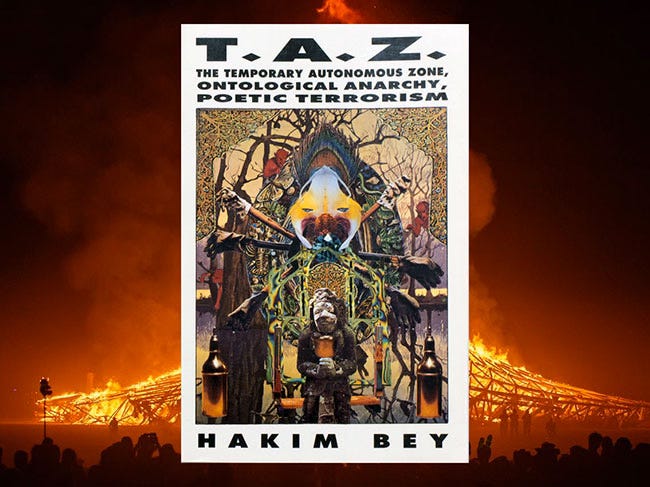What follows is the first in a series of video responses to questions from subscribers on any aspect of my work and thought, or even other related ideas. Please join our community and share your thoughts and questions in the comments.
Hey, everyone!
First of all, thank you for so many amazing questions in the chat. Over the next days, I'll try to get through some of them. Also, I think it would be really interesting if people wanted to start making video responses to my video responses. Everybody on Substack has their own capacity to create a Substack. If you're inspired, you could make a response either to the original video or to my response. Just put it up, put a link to it in the comments, and then we can have a little bit of a video dialogue. It could be very interesting.
Today, I'm going to just take one of these questions, which is a deep one, one that I think about all the time and was really excited about, from somebody who goes by the name OS. They wrote, in part, they “always like to connect theories of consciousness or any of these occult theories with social justice movement theory to help answer the question of how to achieve systemic change. For example, the morphogenetic field theory” — that I talked about yesterday — “could be a framework for developing an organizing strategy for movement building where people, instead of molecules, come together at a certain moment in time to achieve something at that moment, then come together again for other reasons at another moment in time in a different context.”
That somehow reminds me a little bit of the Temporary Autonomous Zone idea or the TAZ idea that Hakim Bey developed in that book, which was also a big inspiration for Burning Man and the transformational festival movement. It's definitely something you feel when there are these encampments, whether it's Occupy or some of the pro-Gaza encampments in colleges.
“Being intentional about the way groups of people come together to interact and activate a space, also changing consciousness by focusing on a shift in media representation, which means altering the non-material and developing an idealism and a vision as a first step.”
I totally agree with that, and we'll get into that.
“Maybe I'm completely off here with your thinking about this, but then how do you think that this idea of magic can be applied in bringing about systemic change and thereby shifting consciousness?”
Fantastic question, very connected to my own thinking. Let's look at a few different elements of it.
One problem with current Leftist movements is that a lot of Leftists are still trapped in the frequency of materialism. Obviously, Marxism had a materialist ideology. Even these sort of progressive movements, they might address the ecological conditions, like 350.org or Extinction Rebellion, but they're not really positing a beyond, like a kind of North Star beyond sustaining society, changing it to a certain extent so that it's ecologically viable. So, I don't think that they go far enough, at all.
I actually think to have a successful movement, it has to start either from the analytic idealist or panpsychist perspective, which is also, as I discussed last time, vindicated by the last century of physics and scientific research, culminating in the discovery that the universe is “not locally real,” which is just so mind-bending and fascinating. This idea that consciousness is the ontological primary, that consciousness may exist in some sense outside of space and time, constructing physical realities, universes, as its projection, which then leads to processes of evolution. Then evolution is not just a random or accidental process of development. That instinctive field of consciousness seeks to experience itself through increasingly complex, increasingly developed containers of self-awareness and creativity such as you and I. This is what Amit Goswami writes about in The Self-Aware Universe and The Physics of the Soul.
It's a very different perspective than the materialist idea that we're in this entropic evolutionary process that happened to create us through a series of random accidents: Human consciousness developed from the opposable thumb or just from random changes in diet, or whatever. Actually, according to the idealist framework, evolution is not just a blind push: It's actually a pull. Consciousness instinctively seeks to discover itself by creating more and more complex containers of consciousness that have more self-reflexivity, more free will — we can discuss what that means later — more creative capacity, more capacity to love, more capacity to do all sorts of interesting things.
I think that in itself is a necessary shift in helping us think about what could be beyond our current civilizational structure of post-industrial capitalist society. Why is it worthwhile to do the work to break free of these current structures if we live in a nihilist, atheist universe where death is total oblivion? Then you end up putting your faith in techno-singularity ideas that we can immortalize or instantiate the ego either in digital networks or through melding organic life with silicon, creating biotechnological bodies or cyborg bodies where the ego can be preserved as long as possible, or in perpetuity.
If we were to understand that the universe is consciousness itself, exploring itself, experiencing itself, then we allow more space for the psychic, for the paranormal, for mystic experiences, transpersonal dimensions, other dimensions of reality, reincarnation, and so on, as Goswami explores in Physics of the Soul in a very interesting way.
Where’s the Revolution?
When I look around these days, I'm often struck by the simultaneous need for a large-scale global uprising beyond what we've seen now, and its impossibility.
Listen to this episode with a 7-day free trial
Subscribe to Liminal News With Daniel Pinchbeck to listen to this post and get 7 days of free access to the full post archives.














